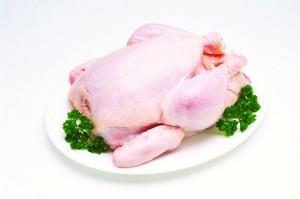The British Poultry Council (BPC) has published a report on its strategy for responsible use of antibiotics including its data from 2012-2015.

The BPC Antibiotic Stewardship Scheme, which compiled the report, was established by the BPC in 2011 to bring together expertise from poultry producers and leading poultry veterinarians.
It claims to be the first UK livestock industry to pioneer a data collection mechanism to record antibiotic usage covering 90% of the production across the chicken, turkey and duck sectors.
BPC chairman John Reed said: “The BPC Antibiotic Stewardship Scheme has been notably successful in delivering a strategy for the responsible use of antibiotics. We want to continue to be open and transparent and we are proud to be the first UK livestock sector to publish this level of information.”
Downward trend
Since the BPC Antibiotic Stewardship Scheme began monitoring its overall use it has demonstrated an encouraging downward trend.
Over the period 2012-2015, production increased by 5%, with UK poultry meat accounting for 44% of total UK meat production.
The total antibiotics used in the same period by scheme members decreased by 44%.
Reg Smith, chairman of the scheme, said: “Through the formation of the BPC Antibiotic Stewardship Scheme, the sector has taken decisive action to develop a strategy to manage antibiotic use. Our key focus is responsible use of antibiotics and, where possible, a reduction in the use of those antibiotics considered to be of most highly critical importance by the World Health Organisation (WHO). We recognise the importance of protecting the integrity of these antimicrobial classes for both animal and human health.”
Poultry species

In 2012, a voluntary ban on the use of third and fourth generation cephalosporins was introduced, as well as a commitment to reduce the use of fluoroquinolone antibiotics. In 2016, the scheme made a further commitment to not use colistin.
The report includes a breakdown of the total use data into antimicrobial classes, with each poultry meat species demonstrating an overall reduction in use of fluoroquinolone antibiotics.
The report also notes the difference between poultry species and the challenges that can affect bird health with limited effective therapeutic treatments available.
Members of the scheme do not support the routine use of antibiotics and have strict measures in place to ensure that, where they are used, they are used responsibly and in line with Responsible Use of Medicines in Agriculture Alliance (RUMA) guidelines.
The BPC Antibiotic Stewardship Scheme will collate the data into specific poultry species (chickens, turkeys, ducks), focusing on chicken under proposed changes to EU legislation. Chicken currently accounts for 84% of all UK poultry meat produced.
The full report can be read here.
This story was originally published on a previous version of the Meat Management website and so there may be some missing images and formatting issues.















